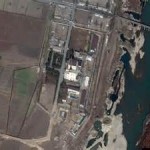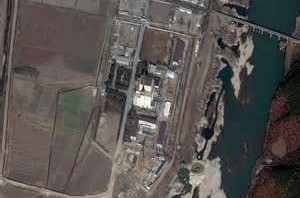It is gratifying that more American citizens are paying attention to government, but the fight of fraud, waste, abuse and collusion is never over. In recent years we have endured scandals of epic proportions yet NO one has been fired or jailed. Wrong-doing is often rewarded with financial bonuses and others are just re-assigned all under the protections of obscure laws and selective investigations and prosecutions. We have seen the publications of Senator Coburn’s Waste Book, we have seen the Citizens Against Government Waste Pig Book, we have seen government investment in failed start-up companies and those that lie including Barack Obama on Obamacare.
Well then we have the TSA abuse, we have endured the NSA, Fast and Furious, the IRS and heck the list is long. But one particular agency that seems to have left the flashing margquee and the headlines is Customs and Border Patrol. Shhhh, but there is huge abuse and lawlessness going on within the ranks and yet one would have to dig deep to find it unless you ask those that live along the Southern border or ranchers that have had ranches in the Southwest for decades.
Somehow sexual abuse and physical abuse by the Border Patrol is being ignored such that almost 1000 cases in only a handful of years go unpunished. In fact the situation is so bad that residents and ranchers don’t want more Border Patrol hired at all. Where is the Inspector General’s report and where is Eric Holder?

This is an outrage….
McClatchy
A new report by an immigration watchdog finds that the United States’ largest federal law enforcement agency rarely punishes its agents for their mistreatment of immigrants and American citizens.
The report by the American Immigration Council found that 97 percent of abuse complaints lodged against Border Patrol agents and Customs and Border Protection officers resulted in no disciplinary action once an investigation had been completed. Those included a complaint from a pregnant woman in El Paso, Texas, that she had miscarried after a Border Patrol agent kicked her in the stomach, and several complaints from women that they had been forced to bare their breasts while in custody.
The survey also found that many complaints against U.S. border agents take years to resolve. The council reviewed 809 complaints filed in the three years from January 2009 to January 2012. But of those, only 485 had been investigated and resolved. The remainder are still under investigation, including a nearly 5-year-old allegation of forced sexual intercourse lodged July 30, 2009, against a Border Patrol agent in El Centro, Calif.
Among the cases that were still “pending investigation, the average number of days between the date the complaint was filed and the last record date provided in the data set was 389 days,” the report said.
“This absolutely confirms the experiences of our border families and communities,” said Vicki Gaubeca, director of the American Civil Liberties Union’s Regional Center for Border Rights in New Mexico. “U.S. Customs and Border Protection is now the largest law enforcement agency in the nation, and yet this massive buildup of border enforcement resources has not been matched with adequate accountability and oversight.”
The report provides a detailed look inside the government response to abuse complaints that have grown as U.S. Customs and Border Protection and the Border Patrol have more than doubled in size in the last seven years. Its results closely track McClatchy reports into questionable actions by border agents.
Federal officials said Wednesday morning that they take every complaint seriously and do not tolerate abuse in their ranks. They said the number of complaints is a small amount considering border officials apprehended more than 1 million people during the reported time period.
“The men and women of CBP strive to treat each of the over 1 million people we come into contact with each day with the respect they deserve,” Border Patrol public affairs officer Douglas Mosier said in a statement Wednesday. “All allegations of misconduct are taken seriously, and if warranted, refer for appropriate investigative and/or disciplinary action to be taken.”
According to the complaints, which the immigration council received in response to a Freedom of Information Act request, physical abuse was the most common complaint, followed by “excessive use of force.” Other allegations include inadequate conditions and racial profiling.
There were seven allegations of sexual abuse, including three allegations of forced sexual intercourse and four of inappropriate touching or forcing female aliens to bare their breasts.
But 11 other instances that weren’t classified as sexual abuse seemed similar in nature to others that were, including two in which women said they were forced to bare their breasts, four allegations of inappropriate strip searches and four claims of inappropriate touching during a search. In one case, the case description referred only to sexual abuse, without specifics.
Of the 485 cases where a decision was made, six complaints led to counseling, two led to court proceedings, two led to oral reprimands and two led to what the report called “written reports.” Only one resulted in a suspension, the report said.
One of the report’s authors, Daniel Martinez, an assistant professor of sociology at George Washington University in Washington, said the findings are only a small subsample of the abuse that’s likely taking place. He said that of the hundreds of thousands of undocumented aliens returned to their countries each year, 10 percent claim they were abused while in U.S. custody.
“This is just really scratching the surface of the true population,” Martinez said.
The report also doesn’t include some of the most egregious cases of alleged abuse reported in recent years because they happened after the months for which the data were collected. Not included, for example, is a September 2012 incident in which a Chula Vista, Calif., Border Patrol agent allegedly jumped on the hood of unarmed woman’s car, then opened fire on the vehicle, killing her. An autopsy showed she’d been shot nine times.
The report also doesn’t cover the October 2012 incident in which Border Patrol agents shot and killed a 16-year-old boy as he walked on the Mexico side of the border to his Nogales home or the December 2012 detention and forced medical examination of a 54-year-old woman and U.S. citizen who was pulled from line as she waited to cross back into El Paso, Texas. She was taken to a hospital where she was subjected to six hours of invasive body searching, including probes of her anus and vagina, before being allowed to go.
McClatchy and other news organizations have chronicled the deaths of at least 21 people, 10 of whom were shot for throwing stones at Border Patrol agents, amid criticism that the Border Patrol has expanded too quickly to ensure proper training of new agents.
Until Tuesday, however, that had been no comprehensive accounting of abuse complaints against the agency. The Department of Homeland Security, which oversees the Border Patrol and Customs and Border Protection, does not release statistics on complaints and how they are resolved.
Democratic Rep. Beto O’Rourke of Texas and Republican Rep. Steve Pearce of New Mexico introduced legislation in March that would impose more levels of oversight and accountability on U.S. Customs and Border Patrol.
Read more here: http://www.mcclatchydc.com/2014/05/06/226724/border-patrol-rarely-punishes.html#emlnl=Crime_%26_Justice_Newsletter#storylink=cpy










